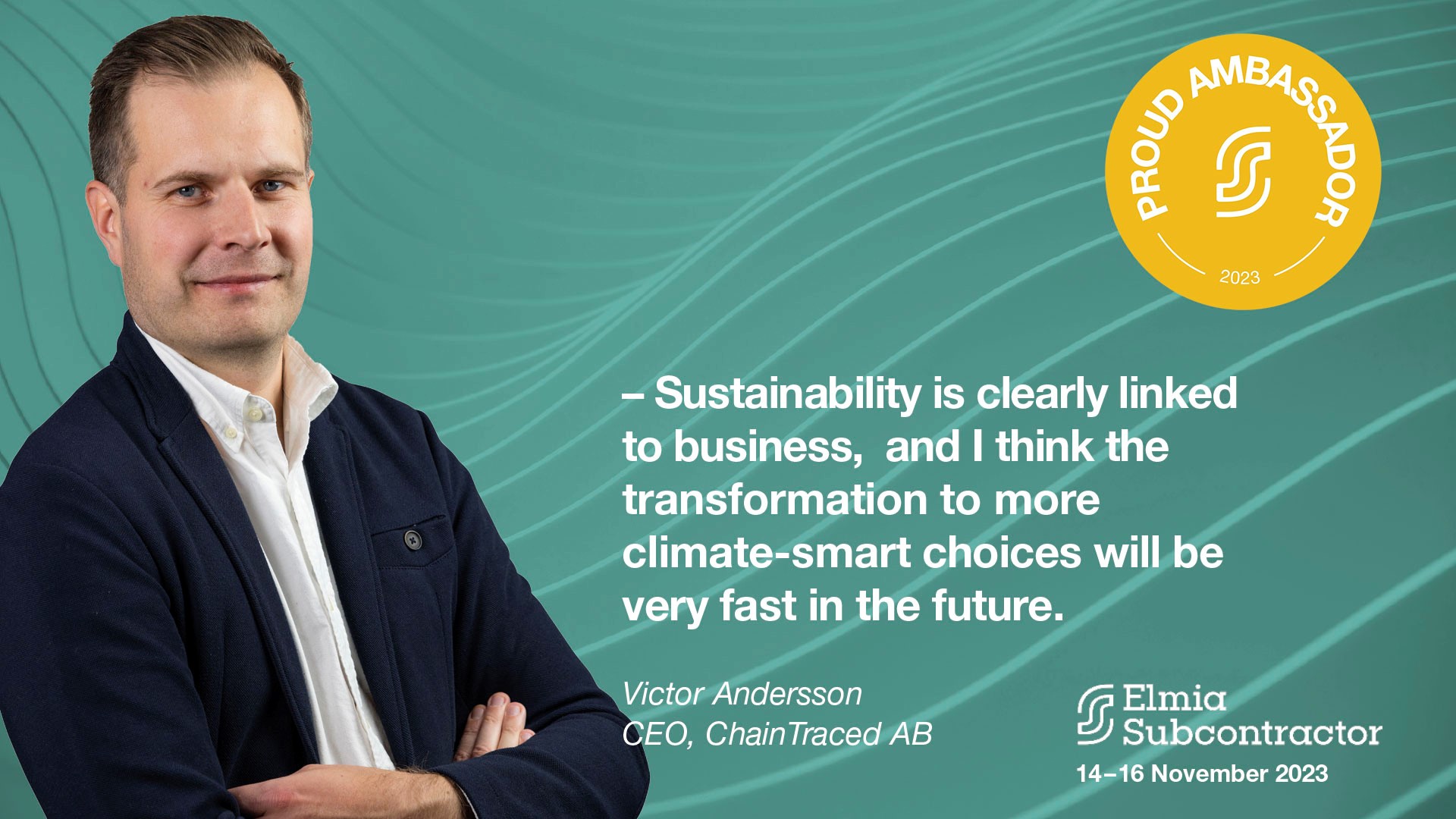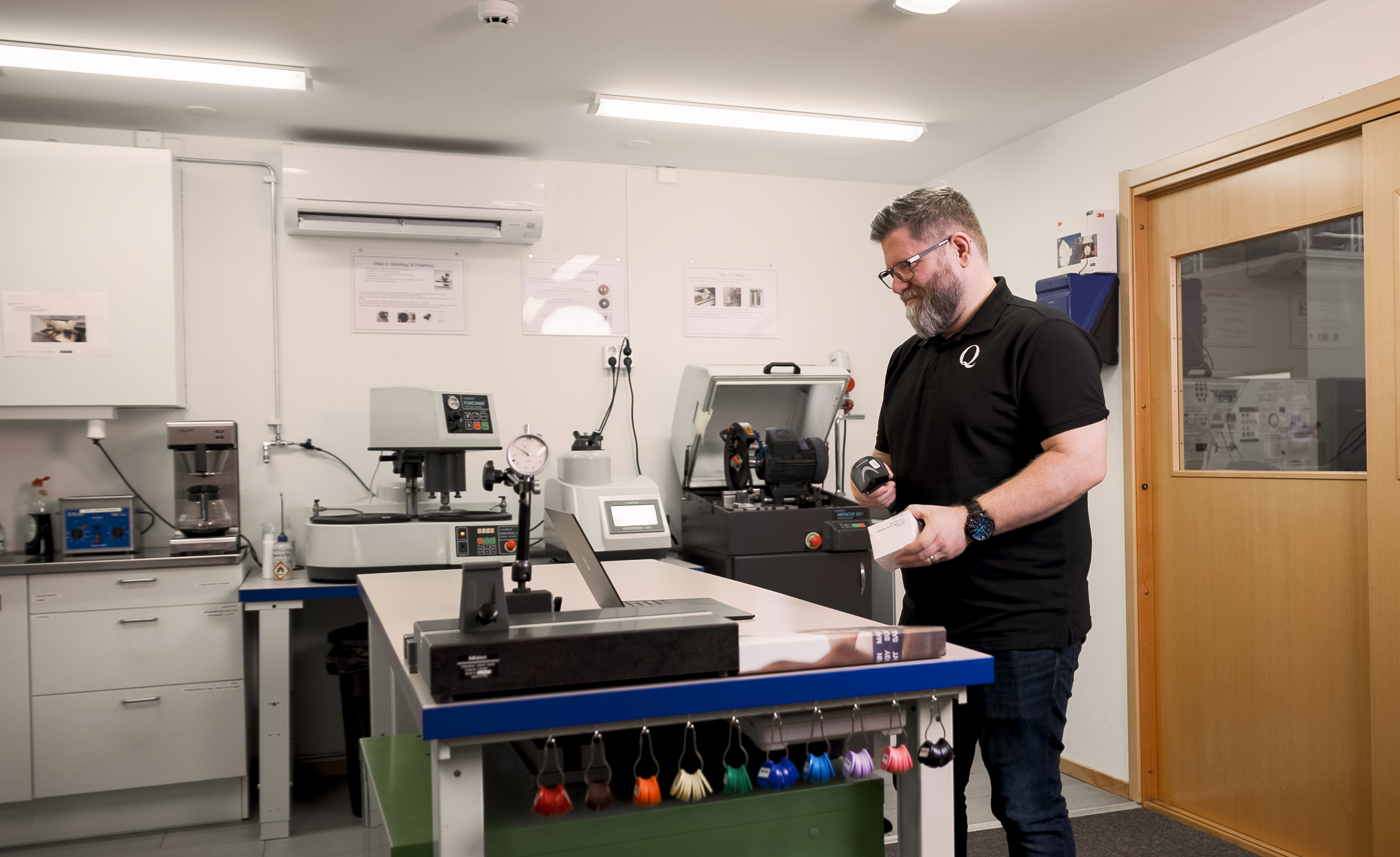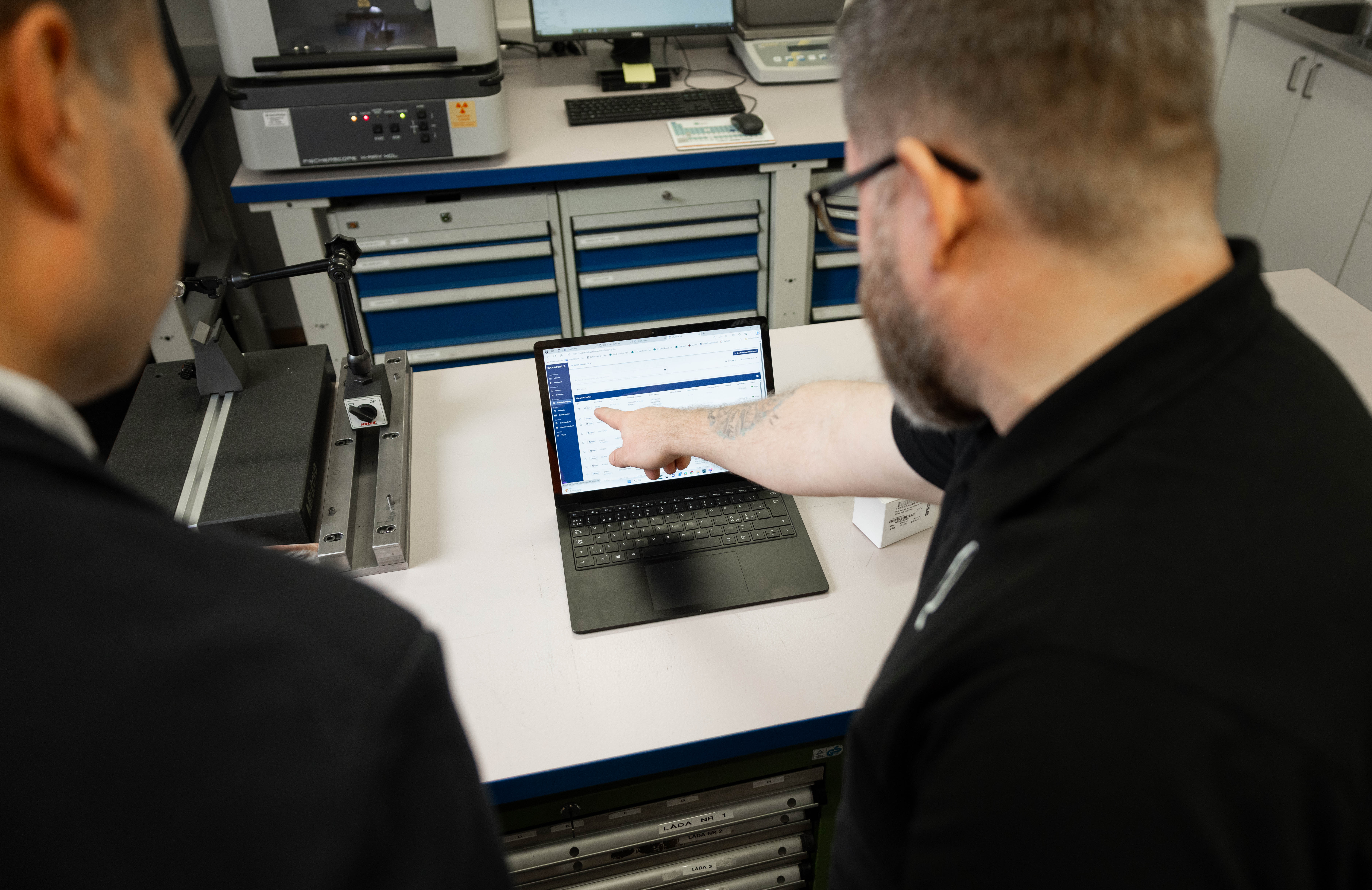ChainTraced makes the link between sustainability and business simple
The software company ChainTraced AB is one of Elmia Subcontractor's ambassadors this year. The company describes itself as customer-oriented, whose goal is to always be one step ahead to enable the best sustainable solutions for their customers. CEO Victor Andersson shares his thoughts on how more and more companies are choosing to focus on sustainability, how the digitalisation of information can contribute to the green transition in the metal industry and why Elmia Subcontractor is an important meeting place.
Digitalising the flow - from mine to finished product
The steel industry currently accounts for around 8% of global emissions, and it is not uncommon for 90% of emissions to occur at the beginning of the value chain, in steel mills and mines.
Victor's experience is that steel mills generally have a good understanding of their data and carbon footprint at the product level, while it is not as widespread among metal processors.
Metalworking companies usually possess an overall figure showing the company's total carbon footprint. This creates difficulties when they receive a vast amount of Excel files and PDF documents from OEMs (original equipment manufacturers) requesting information on the carbon footprint of each individual product.
This is where ChainTraced technology comes in. By establishing an efficient structure, it enables companies to manage the information and specify the carbon footprint at product level, as well as simplifying access to the steel mill's data.
-Our typical customer is a company attending Elmia Subcontractor and working with metal processing. The companies' needs are partly that they need to know if the product keeps what it promises in terms of function and quality, and partly what its total CO2 footprint is. This is where we saw a need for change, that digitisation of the flow could make it easier for companies and create transparency along the entire value chain. It is only when you see where the steel comes from and what its CO2 footprint actually is that you can decide how you want to proceed to reduce your emissions," Victor explains and adds:
- The advantage of Sweden's steel industry is that we have good access to green electricity and several long-standing initiatives to offer green steel, which means that we are able to maintain a low CO2 footprint right at the beginning of the value chain.
Automated process
So, information-heavy PDFs are a thing of the past. More specifically, the customer places a purchase order and ChainTraced knows which certificates to send. When the certificate comes in, it is validated and compared so that the standards are correct, which means that the entire collection process is automated. In this way, data is collected all the way from mine to steelworks and finished product. If there is a fault in the product, the traceability of the product makes it possible to identify where in the chain the fault occurred . Without traceability, it would be very time-consuming and costly to identify where in the chain the error occurred. Instead, you have to go by the dates and recall the products within a certain time frame.
Daring to make sustainable investments
The challenge with companies' sustainability efforts is that they are reluctant to make sustainable investments because of the risks involved. Even if you think sustainability is important, investing is risky and a bad investment can have major consequences for the company. When asked if ChainTraced has noticed a difference in companies' attitudes towards sustainability issues, Victor answers as follows:
-We definitely notice a big difference in the last few years alone in the attitude and approach of companies towards sustainability . Companies want to make a real difference and reduce their footprint, and sustainability is often at the top of the board agenda. There has also been a change in concrete customer requirements, such as the requirement to specify the company's current CO2 footprint, but also how companies are working to reduce their climate impact in the coming years. As a supplier, you are then forced to take a stand in order to meet your customers' needs. Ultimately, it is the customers' demand that controls the market.
Help from legislation
In 2015, world leaders signed the 2030 Agenda and since then, economic, social and environmental sustainability has become a much more prominent issue for many companies. Victor believes that the legislation and tax requirements on imported CO2 today can also be a step in the right direction. CBAM, the Carbon Border Adjustment Mechanism, is an example of this. Reporting requirements that entered into force on 1 October 2023 mean that emissions from specific carbon-intensive goods imported into the EU are taxed in the same way as goods manufactured in the EU. CBAM will be fully implemented from 1 January 2026, but already from 1 October this year it is mandatory for importers of CBAM goods to report the embedded carbon dioxide emissions in the goods they import. Those countries that do not currently invest as much in sustainable development will be forced to do so in order to keep their business.
- With the introduction of CBAM, countries with high export dependence on the EU will have to accelerate their energy transition and switch to green electricity in order to maintain their production. There is a lot going on in the industry now, both in terms of changing attitudes and legislation. Another example of impending legislation is the Digital Product Passport. We are also seeing a trend that companies which position themselves as sustainable in the market are also getting more business. Sustainability is clearly linked to business, and I think the transformation to more climate-smart choices will be very fast in the future.
Elmia Subcontractor - a valuable meeting place with a chance for spontaneous conversations?
Elmia Subcontractor is a fantastic meeting place for Chaintraced to meet companies and be inspired, exchange ideas and make new contacts .
-Subcontractor provides the opportunity for spontaneous conversations and questions. This is particularly valuable at a time when we don't see as much of each other physically. Being here gives us an extremely important input in how we should work forward to remain relevant and stay ahead of the game," concludes Victor Andersson.
FACTS
Company: ChainTraced AB
Location: Stockholm
Founded: 2019
Number of employees: 9
Sector: IT services and IT consultancy services


